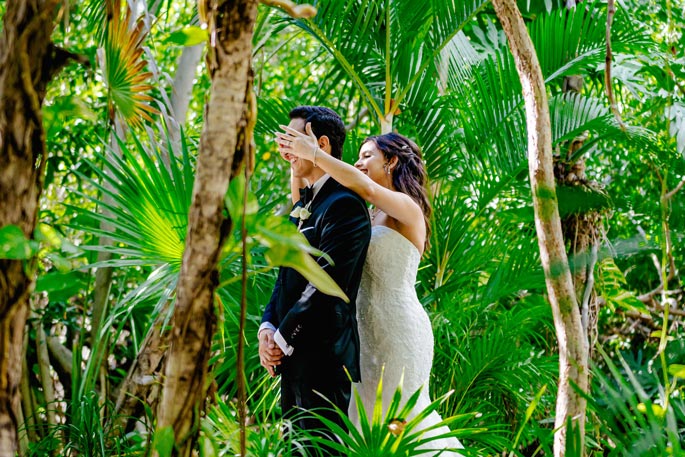Wedding photography is an art form that requires not just a keen eye for detail but also a deep understanding of the emotions and stories that unfold during such a pivotal day. These photographs are more than just images; they are cherished memories that capture the essence of love, commitment, and the beginning of a new journey together. In a field where excellence is paramount, many individuals and couples place their trust John Bognot Photography, who are known for their ability to immortalise these moments with unparalleled grace and beauty.
The Magic Begins in the Camera
The journey to capturing stunning wedding photographs begins with the camera itself. This stage is critical, as it lays the foundation upon which all subsequent editing and enhancements are built. Understanding the interplay of lighting, composition, and timing is crucial. Natural light, when harnessed correctly, can paint scenes in the most flattering hues, highlighting the joy and beauty of the occasion.
Composition, on the other hand, involves arranging elements within the frame to tell a story, to capture a moment that feels both candid and profoundly intimate. A photographer’s ability to capture raw emotion—be it a tearful smile, a loving gaze, or a burst of laughter—adds a layer of depth and authenticity to the photographs that no amount of post-processing can replicate.
Choosing the Right Editing Software
The next step in the journey is the selection of the right editing software. This choice is instrumental in defining the stylistic nuances and overall quality of the final photographs. Adobe Photoshop and Lightroom are industry staples, celebrated for their comprehensive set of tools and flexibility.
However, the market offers a plethora of options tailored to different needs and preferences, from Capture One, known for its color grading prowess, to DxO PhotoLab, with its exceptional noise reduction capabilities. The right software complements a photographer’s skills, allowing them to refine their captures into the envisioned masterpieces, ensuring each photograph not only looks stunning but feels genuine.
Essential Editing Techniques for Wedding Photos
Editing wedding photos is an exercise in subtlety and restraint. The objective is to enhance, not alter, to refine without losing the essence of the moment. Color correction plays a pivotal role in this process, ensuring that the photographs reflect the true colors and ambiance of the day. It involves adjusting the white balance, saturation, and contrast to recreate the scene as it was, imbued with all its emotions and hues.
Exposure adjustment is another critical technique, especially for images taken in less than ideal lighting conditions. It helps to reveal details hidden in shadows or highlights, ensuring that every element, from the intricate lace on a wedding dress to the expressions of the guests, is visible and vibrant. Retouching, when done with a light hand, can remove distractions and imperfections, ensuring that the focus remains on the subjects and their story.
Advanced Editing Tips for Breathtaking Results
For those seeking to elevate their wedding photography, diving into advanced editing techniques can unveil a new realm of creative possibilities. Mastery over layers and masks, for example, allows photographers to make selective adjustments that can dramatically enhance the mood and impact of a photo.
Whether it’s adding a soft glow to the sunset in the background or accentuating the sparkle in the couple’s eyes, these tools offer precision and flexibility. Creative effects, when used judiciously, can add a unique flair to the photographs. Techniques such as black and white conversion, selective coloring, or the use of gradients can turn ordinary photos into memorable pieces of art, each telling a part of the wedding story in a compelling and visually stunning manner.
Delivering the Final Album: Storytelling through Sequencing
The final delivery of a wedding album is more than just a collection of edited photographs. It is the culmination of a photographer’s vision, technique, and creativity. Sequencing the photos to narrate the day’s events, from the nervous anticipation of the morning to the joyous celebrations of the evening, requires a keen understanding of storytelling.
The selection of images is critical; each must serve a purpose, contributing to the narrative arc of the wedding day. The final album should not only showcase the beauty and emotion of the day but also evoke the same feelings and memories years down the line. It’s a testament to the photographer’s ability to not just capture moments but to craft a story that resonates with the heart.
In the realm of wedding photography, the difference between a good photograph and a breathtaking one often lies in the details—the subtle edits, the narrative flow of the album, the understanding of light and shadow. Professionals like John Bognot Photography embody this pursuit of excellence, ensuring that each wedding photograph is not just seen but felt, not just remembered but relieved. As we navigate through the nuances of capturing and editing wedding photographs, we are reminded of the power of photography to preserve our most precious moments, turning them into treasures that withstand the test of time.
